Earlier this week, Todd Kenreck sat down with his wife Meagan, as well as Makenzie de Armas and Dennis Aldea, the creators of the One on One D&D podcast, to talk about how to play D&D with one Dungeon Master and just one player.
Gathering a full party of three or more players to play D&D can be an arduous endeavor. Maybe you don’t have enough people interested in playing with you, or maybe your potential players’ schedules just don’t align properly. Perhaps—if you’re reading this in April 2020—you can’t leave your home and you want to play D&D with your romantic partner, or your roommate. This style of play, sometimes called one-on-one D&D or duet-style D&D, is a great way to play without the challenge of assembling a full adventuring party.
Even if you’re just curious about this atypical style of playing D&D, read on. We’ll discuss best practices for playing duet D&D, good starter one-on-one adventures that you can try out in an evening, and tips for creating your own duet adventures. Let’s go on an adventure—alone!
Playstyle Tips for Duet Play
The best moments in Todd’s conversation with Meagan, Makenzie, and Dennis occurred when one of them dropped a nugget of one-on-one D&D wisdom and the others all exclaimed how true it was. Let’s start by sharing some of our panelist’s best tips for playing D&D with just one player.
Talk to Each Other. Communication is hard, and communicating openly with one single person can be the hardest thing of all. Nevertheless, it’s absolutely vital that you are able to discuss anything with your fellow duet player. If you don’t feel comfortable expressing your concerns, sharing your favorite moments, or just being vulnerable with your friend, your campaign might be doomed to failure. On the flip side, being open and honest with one another is a great way to strengthen your friendship, even outside of playing D&D!
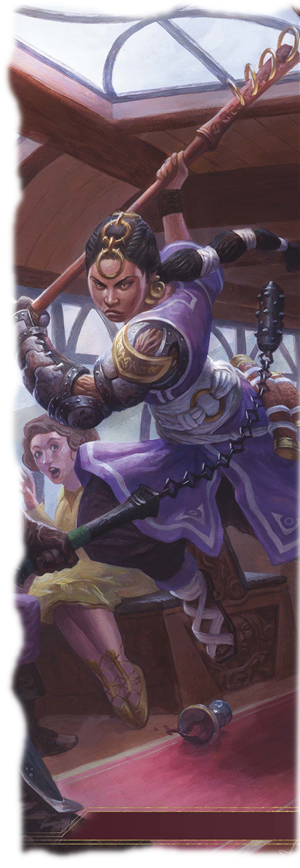 Plan Together. On a related note, one thing you should always discuss with your game partner is what things you both find fun. Some D&D players can “suck it up” and slog through an unfun dungeon if they know that their fellow party members are having fun, but this is a miserable way to play D&D when you’re the only player. The DM doesn’t have to share all of their notes with their game partner in order to make the game fun, but having a Session Zero to discuss things that you’d like to see in your campaign is vitally important in duet play. Do you like lots of combat? Lots of social interaction? A mix of everything? Do you not like emotionally intense scenes, or scenes of graphic violence? Discuss those things up front!
Plan Together. On a related note, one thing you should always discuss with your game partner is what things you both find fun. Some D&D players can “suck it up” and slog through an unfun dungeon if they know that their fellow party members are having fun, but this is a miserable way to play D&D when you’re the only player. The DM doesn’t have to share all of their notes with their game partner in order to make the game fun, but having a Session Zero to discuss things that you’d like to see in your campaign is vitally important in duet play. Do you like lots of combat? Lots of social interaction? A mix of everything? Do you not like emotionally intense scenes, or scenes of graphic violence? Discuss those things up front!
You might even want to revisit your Session Zero every few sessions, just to make sure you’re both still on the same page.
How Many Adventurers Are There? This might seem like a silly question to pose in a game of one-on-one D&D, but it’s not uncommon for players to play more than one character. This is made even easier thanks to the Sidekick rules presented in the D&D Essentials Kit. These sidekick rules essentially let one player play a whole D&D party, sort of how you control an entire party in computer RPGs like Baldur’s Gate. Is this fun for you? Or does it defeat the purpose of duet play?
Similarly, ask about player pets. Would you allow your player to have a pet displacer beast? Or would you require that player to play a pet class like a Beast Master ranger, Pact of the Chain warlock (both from the Player’s Handbook), or Battle Smith artificer (from Eberron: Rising from the Last War) in order to have an animal sidekick?
Modify Encounters. Encounter building has always been more art than science, but that becomes more true than ever when you have a party of one. Without a full party to provide a safety net for your character, it's easy to get overwhelmed by monsters—especially when you're outnumbered even two-to-one or three-to-one. If you're running an adventure designed for a party of characters, like one of the official D&D hardcovers, the DM will need to do some work to modify the encounters so that the single character doesn't get pulverized. The D&D Beyond Encounter Builder is great for that; just enter your party size as having only 1 character and add in the monsters from the original encounter. Then you can futz with the number of (and even type of) monsters present until the encounter's difficulty is rated as Hard. That's a great starting point, and from here the DM can start finessing the difficulty of your encounters to best suit the player's power level and tactical skill.
Rethink Death and Dying. D&D becomes very dangerous when you don’t have a balanced party to back you up. Once you fall unconscious, you don’t have any way of being healed back up—all you can do is hope that you pass three death saving throws before you fail three. And if fortune doesn’t smile upon you (or if your enemies are vicious and stab you while you’re bleeding out) then your adventure will come to a quick and messy end. Makenzie and Dennis suggested using the Injuries rules presented in chapter 9 of the Dungeon Master’s Guide to soften the consequences of failing three death saving throws in order to keep the adventure going.
In this system, your character doesn’t die when they fail three death saves, unless you and your DM agree that it’s implausible for them to survive or just narratively appropriate that your hero’s adventure comes to an end. Instead, they fall unconscious and awaken later, now with an injury from the Lingering Injuries table. You may have been captured or left for dead, but you’ve probably also lost all of your precious gear—which for some adventurers is a fate worse than death anyway.
Don’t Stay in One Role for Too Long. When you’re playing D&D one-on-one, it can be stressful to always be the Dungeon Master, or to always be the player. To take the stress off you and your fellow player, try swapping out roles when you stop having fun in your current role. You may want to switch to a different campaign when you switch roles, or focus on a different part of the same campaign you’ve been playing the whole time.
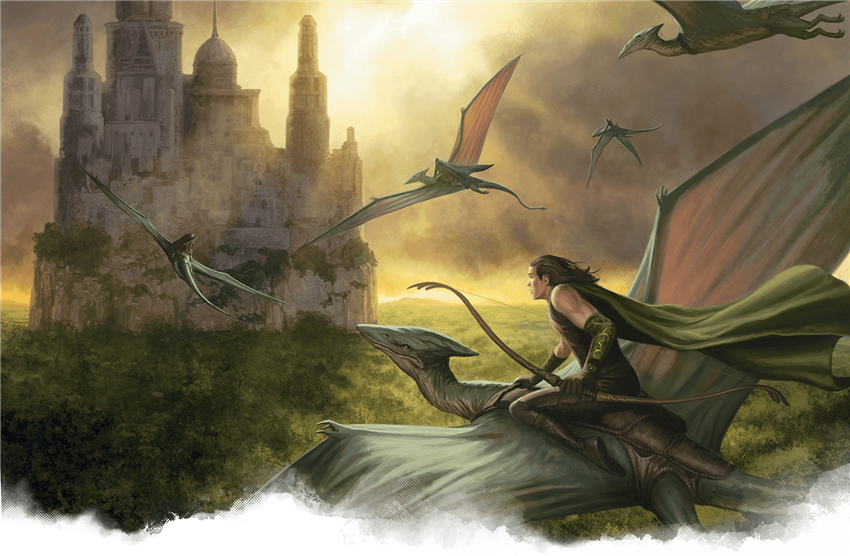
Adventures for Duet Play
If you want to play D&D duet style, you’re going to need an adventure. This can be tricky, since the overwhelming majority of D&D adventures are designed for one Dungeon Master and a group of three to five other players. Ultimately, the best way to play one-on-one is to create the adventures yourself. This lets you tailor your challenges and story moments specifically to the needs and wants of you and your fellow player. Creating duet adventures takes a very different skill set than creating adventures for a whole party of characters, but you’ll get better at making adventures the more you do it.
Nevertheless, there are two ways to learn to do something. The first is to learn by doing, as we explained above. The second is to learn by example. Reading adventures is the way all the good D&D writers in the world learned how to create engaging adventures of their own. Start by reading. There aren’t nearly as many duet adventures in the world as there are party-based ones, but that doesn’t mean there aren’t any. And in fact, there are a couple really great ones. Here are two duet adventures that will give you a great crash course in how to write an adventure that you can play with just one other person.
First Blush
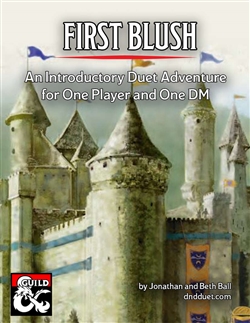 The pressures of one’s birth negotiate a difficult harmony with one’s destiny. A new path might be directly ahead, but how is one to know?
The pressures of one’s birth negotiate a difficult harmony with one’s destiny. A new path might be directly ahead, but how is one to know?
First Blush is a classic, pioneering adventure of the one-on-one adventure genre and a DMs Guild Mithral Best Seller. The term “duet adventure” stems from the name of the authors Beth and Jonathan Ball’s blog, DnD Duet. This blog includes more than just links to one-on-one adventures for you to buy. If this article has got you interested in playing D&D in a one-on-one setting, their website includes more articles that go in-depth on how to help you run a great duet session of D&D.
But what about the adventure? First Blush is a one-shot adventure designed to be played with one DM and one player, in which the player character escapes from confinement in a castle and discovers an ancient secret that threatens to change their life forever. First Blush leans into fantasy novel tropes in a way that party-based D&D adventures can’t; this is a singular story with one character as a protagonist. This gives you the chance to have a full-fledged Campbellian hero’s journey in your duet game, which some D&D players might be longing for, if they’ve only played in party-based games.
This adventure is pay-what-you-want, and while it functions perfectly well as a one-shot adventure, it also can be used as the launching point for a trilogy of stories continued in its sequels: Second Glance and Third Time’s the Charm.
The Blood Hunter
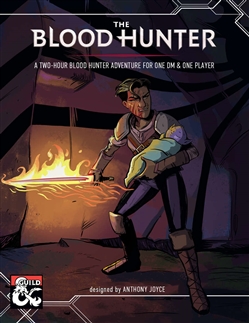 You are a Blood Hunter, feared by even the most vile monstrosities throughout Faerûn. Commoners shut their windows and lock their doors as you approach, and small children cry at the sight of your unnatural demeanor. Such is the burden of life as a Blood Hunter.
You are a Blood Hunter, feared by even the most vile monstrosities throughout Faerûn. Commoners shut their windows and lock their doors as you approach, and small children cry at the sight of your unnatural demeanor. Such is the burden of life as a Blood Hunter.
The Blood Hunter is a one-shot duet adventure is inspired by Matthew Mercer’s blood hunter class and the Claret Orders described in Explorer’s Guide to Wildemount. This adventure, written by Anthony Joyce, has become an instant classic on the DMs Guild, earning an impressive Gold Best Seller medal in its first month of release. While this adventure is less explicitly personal than First Blush, it packs in the thrills by casting you as a 5th-level blood hunter hunting a werewolf terrorizing Phandalin, the well-known setting of the D&D Starter Set adventure Lost Mine of Phandelver.
Because of the game’s more personal nature, it feels confident delving into game mechanics that might cause a party-based game to drag. The protagonist of this adventure possesses some skill in the art of hemocraft, and can use the blood of their enemies to create alchemical potions that grant them volatile powers. While deliberating over what type of potion to make might not go over well in a game where four other players all want to take their turn, this sort of minute tactical decision makes perfect sense in a one-on-one setting.
Your Own Adventure
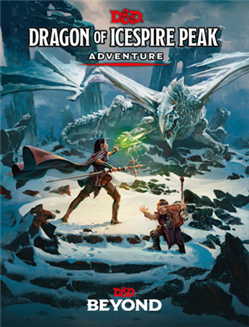 Take a look at these two adventures, or search for your own duet adventures. Read through them carefully and try running at least one of them for a friend. They’re short, and—if you’re reading this in April 2020, anyway—you’re self-isolating at home, anyway. Get yourself set up to play D&D online with a friend and run one of these 2 to 4 hour adventures. You can even try borrowing ideas from the short quests of the D&D Essentials Kit adventure Dragon of Icespire Peak. While you're there, put the Sidekick rules from that adventure in your duet D&D toolkit; even if your player doesn't want to have a sidekick all the time, maybe one story you want to tell will call for a secondary character that helps the hero.
Take a look at these two adventures, or search for your own duet adventures. Read through them carefully and try running at least one of them for a friend. They’re short, and—if you’re reading this in April 2020, anyway—you’re self-isolating at home, anyway. Get yourself set up to play D&D online with a friend and run one of these 2 to 4 hour adventures. You can even try borrowing ideas from the short quests of the D&D Essentials Kit adventure Dragon of Icespire Peak. While you're there, put the Sidekick rules from that adventure in your duet D&D toolkit; even if your player doesn't want to have a sidekick all the time, maybe one story you want to tell will call for a secondary character that helps the hero.
If you enjoyed the experience and want to create your own duet adventures to play, start by writing down a few of your thoughts after the game. Come back to those thoughts later and jot down a few story ideas. Start by building these ideas out into a scene-by-scene (or area-by-area) outline. If you’ve completed an outline, that’s all you need to run an adventure! You’ll need more meat on those bones if you want to publish it on the DMs Guild, but a solid structure is all you need to run a game of D&D, even in this unfamiliar format. Keep the advice above in mind while playing, and you and your friend will have a great time.
Have you ever played D&D one-on-one before? What advice would you give to people who want to try playing this way? Let us known in the comments!
Create A Brand-New Adventurer Acquire New Powers and Adventures Browse All Your D&D Content
 James Haeck is the lead writer for D&D Beyond, the co-author of Waterdeep: Dragon Heist, Baldur's Gate: Descent into Avernus, and the Critical Role Explorer's Guide to Wildemount, a member of the Guild Adepts, and a freelance writer for Wizards of the Coast, the D&D Adventurers League, and other RPG companies. He lives in Seattle, Washington with his fiancée Hannah and their animal companions Mei and Marzipan. You can find him wasting time on Twitter at @jamesjhaeck.
James Haeck is the lead writer for D&D Beyond, the co-author of Waterdeep: Dragon Heist, Baldur's Gate: Descent into Avernus, and the Critical Role Explorer's Guide to Wildemount, a member of the Guild Adepts, and a freelance writer for Wizards of the Coast, the D&D Adventurers League, and other RPG companies. He lives in Seattle, Washington with his fiancée Hannah and their animal companions Mei and Marzipan. You can find him wasting time on Twitter at @jamesjhaeck.








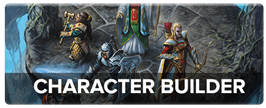
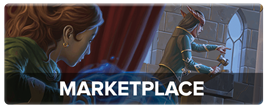
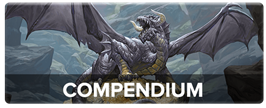
-
View User Profile
-
Send Message
Posted Apr 25, 2020I don't think one-on-one is very good for new players.
-
View User Profile
-
Send Message
Posted Apr 25, 2020D&D one on one is also great for solo parents with a kid! :)
My daughter and I have played through the D&D Essentials Starter kit - Dragon of Icespire Peak. We have had a ton of fun! Sure I miss my adult group meeting in person, but this has been a great bonding experience for the kid and I.
-
View User Profile
-
Send Message
Posted Apr 26, 2020Really appreciate this article. Since being at home due to Covid 19 my son and I have been running a campaign 1:1. These are great things to consider in our games, thanks!
-
View User Profile
-
Send Message
Posted Apr 26, 2020∆
-
View User Profile
-
Send Message
Posted Apr 26, 2020(Forgot to quote) may I ask why you don't think so? Just curious :)
-
View User Profile
-
Send Message
Posted Apr 26, 2020As someone who uses D&D in professional treatment groups, I’ve thought about doing some one on one gaming in virtual sessions. In the meantime, I’ve been playing with my 9 year old son during social distancing over the past month and started with the premise of him being in a wizarding school (like Harry Potter). Since he’s not physically in school, he now has NPC classmates and I made up ability check rules while he and the other “kids” learn spells each week. We talked about what it was like to be the last kid to be successful with a new spell and have role played relationship building. We have discussed the importance of learning about and remembering details about friends and teachers. He just leveled up for the first time and decided to go all critter on me and focus on Chronurgy. It’s been a blast for both of us!
-
View User Profile
-
Send Message
Posted Apr 26, 2020As with most activities intended to be fun, it just depends on the people involved, and their own unique strengths, weaknesses, and preferences.
I'm taking my spouse, one-on-one, through Dragon of Icespire Peak, and for her, it's ideal. It's far less pressure for her to learn the game, especially if she were to join a group of experienced players. We can take the time to stop, ask and answer questions, and talk in detail about how and why things work. And as the DM, I can take the time to help guide her through the basics of the game (things that long time players don't even have to think about) without slowing the game down for anyone else.
I will say that it's more demanding to be the DM of one person, especially someone new to the game and RPGs, than being the DM of a group of experienced players (though that, of course, carries its own set of demands with it). Due to her inexperience and lack of desire to run the game, we won't be switching off. But the upside is that it's teaching me a lot about being a better DM, and frankly, being a more patient person.
But ultimately, it's just going to boil down to what you find fun and satisfying. Some folks really need others at the table, in person or virtually, and that's valid. And some DMs just aren't built for the time and patience needed to adapt the game for a single, inexperienced player. Again, completely valid. You just have find your groove.
-
View User Profile
-
Send Message
Posted Apr 26, 2020Outstanding use of the rarely-seen verb, "to futz".
-
View User Profile
-
Send Message
Posted Apr 26, 2020I find a DMPC hard to run because the character already knows everything. Can be a good source of hints though.
Sidekicks are better in my opinion...
-
View User Profile
-
Send Message
Posted Apr 27, 2020Agreed with Chalm. Sidekicks are a better option. I'm currently sharing sidekick duties with my spouse - she rolls for the sidekick, I make sure the sidekick is using their abilities strategically so my spouse isn't saddled with running two characters as she learns the game. But the sidekick isn't a full character of mine; they're effectively an NPC.
-
View User Profile
-
Send Message
Posted Apr 27, 2020Too much pressure, and it's too different from the standard, meaning it can give them a mistaken understanding of the rules.
-
View User Profile
-
Send Message
Posted Apr 30, 2020Some (timely!) solid advice from experienced DM and "duet DM", Matt Colville: https://www.youtube.com/watch?v=OoJMNkgEqKA
-
View User Profile
-
Send Message
Posted Apr 30, 2020Did your parents have any previous experience playing D&D/ttrpg's?
(I was going to ask about Grandma, too, but I saw your response, elsewhere.)
-
View User Profile
-
Send Message
Posted Apr 30, 2020I would like to see more resources for duet play (and solo play for that matter). I find my games with just my wife and I more immersive and entertaining then the recent games we have joined at our FLGS. I would also recommend trying a DM-less game for two players using an oracle system such as Mythic GM Emulator. We have a lot of fun playing our random sessions, and we both are surprised by the directions the game goes.
-
View User Profile
-
Send Message
Posted May 1, 202072
-
View User Profile
-
Send Message
Posted May 2, 2020Love this! And you mention some of my favorite games and settings.
-
View User Profile
-
Send Message
Posted May 3, 2020I really like the old 1e adventure Eye of the Serpent (available on DM's Guild). IIRC it's designed for one PC and three NPC party members. I recently took my 2 sons through it as a link from First Blush to Second Glance, which it fits perfectly. (BTW we didn't find that First Blush scaled up well to two PCs, story-wise. We're currently on Second Glance and that is going much better.)
-
View User Profile
-
Send Message
Posted May 4, 2020You could get a few retainers as well, to help you along the way. That's classic OSR style: your charisma score will have an impact on how many retainers you might be able to get, and how loyal they are (loyal as in: are they going to stick around when the going gets really rough). Also: gives you something worthwhile to do with all that shiny gold.
-
View User Profile
-
Send Message
Posted May 9, 2020Honestly I just recently got into d&d and ive been wanting to play with my friend for awhile but I didnt know where to even start, I dont want to put her off the game because of my first time DMing and i didnt know that a 1on1 session would even work out alright until i saw this article xD Thanks for sharing
-
View User Profile
-
Send Message
Posted May 11, 2020I'm going to run The Blood Hunter for my wife this Friday. She absolutely loves The Witcher 3 and the Netflix show and I'm really interested in DMing (this will be my first time). We're both really excited. I printed off the handouts yesterday and she wrote a short novella of a backstory for her PC. Can't wait!